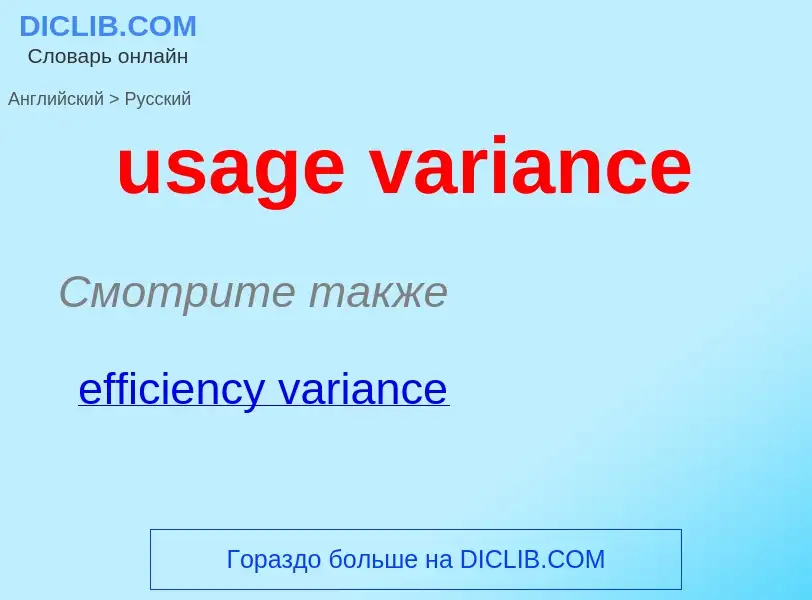Übersetzung und Analyse von Wörtern durch künstliche Intelligenz ChatGPT
Auf dieser Seite erhalten Sie eine detaillierte Analyse eines Wortes oder einer Phrase mithilfe der besten heute verfügbaren Technologie der künstlichen Intelligenz:
- wie das Wort verwendet wird
- Häufigkeit der Nutzung
- es wird häufiger in mündlicher oder schriftlicher Rede verwendet
- Wortübersetzungsoptionen
- Anwendungsbeispiele (mehrere Phrasen mit Übersetzung)
- Etymologie
usage variance - Übersetzung nach Englisch
Смотрите также
['ju:zidʒ'ju:sidʒ]
общая лексика
употребление, использование
коэффициент загрузки
узус
употребление
медицина
использование
нефтегазовая промышленность
применение
эксплуатация
существительное
общая лексика
обращение
употребление
применение
использование
узус
обычное употребление (слов, выражений и т. п.)
обычай
обыкновение
обхождение, обращение
обычай, обыкновение
словоупотребление
юриспруденция
торговый обычай
Definition
Wikipedia
The usage of a language is the ways in which its written and spoken variations are routinely employed by its speakers; that is, it refers to "the collective habits of a language's native speakers", as opposed to idealized models of how a language works or (should work) in the abstract. For instance, Fowler characterized usage as "the way in which a word or phrase is normally and correctly used" and as the "points of grammar, syntax, style, and the choice of words."
In the descriptive tradition of language analysis, by way of contrast, "correct" tends to mean functionally adequate for the purposes of the speaker or writer using it, and adequately idiomatic to be accepted by the listener or reader; usage is also, however, a concern for the prescriptive tradition, for which "correctness" is a matter of arbitrating style.
Common usage may be used as one of the criteria of laying out prescriptive norms for codified standard language usage.
Modern dictionaries are not generally prescriptive, but they often include "usage notes" which may describe words as "formal", "informal", "slang", and so on. "Despite occasional usage notes, lexicographers generally disclaim any intent to guide writers and editors on the thorny points of English usage."

